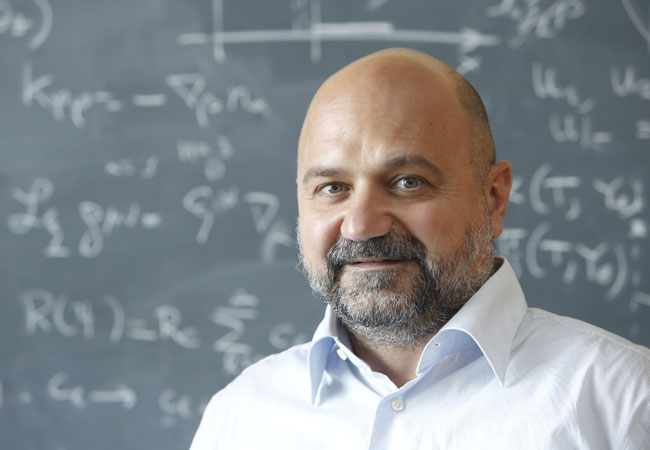
The theoretical astrophysicist Luciano Rezzolla will receive the Frankfurt Physics Science Prize for his outstanding scientific work. The prize will be awarded in an academic ceremony with State Secretary Ayse Asar from the Hessian Ministry of Higher Education, Research and the Arts on Friday, 28th June at 4:30 pm at the Biocentre (Biozentrum), HS B1, Max-von-Laue-Str. 9, Riedberg Campus.
The Goethe University Faculty of Physics, the Walter Greiner Society for the Promotion of Basic Physics Research (WGG) and the Frankfurt Institute for Advanced Studies (FIAS) are hosting the ceremony. After welcoming words from the Dean of the Faculty of Physics, Professor Michael Lang, Goethe University Vice President Professor Roger Erb, founding member of WGG Dr Nikolaus Hensel, and FIAX Chair Professor Enrico Schleiff, awards amounting in total to approximately 150,000 euros will be presented for outstanding young and established scientists .
The Frankfurt Physics Science Prize for outstanding scientific work will be awarded to Professor Luciano Rezzolla and his team at the Institute for Theoretical Physics in recognition of his outstanding achievements in connection with the research on black holes.
Professor Rezzolla recently received media attention in his role as board member and head of the “Black Hole Cam Project” (BHC Project), which made the observation of the hot plasma ring around the black hole at the centre of the galaxy M87 visible for the first time.
Professor Friedrich Hehl, who teaches theoretical physics at the University of Cologne, will receive the Karl Schwarzschild Prize 2019 for his life’s work in gravitational physics. For over four decades, Professor Hehl has studied the theoretical foundations of the general theory of relativity (GTR), creating extensions to Einstein’s GTR in order to integrate the torsion of spacetime that Einstein neglected.
The prize commemorates Karl Schwarzschild, the famous Frankfurt astrophysicist who calculated the Schwarzschild solution to Einstein’s general theory of relativity over one hundred years ago.
Dr Maris Bauer will receive the “Walter Greiner Prize“ for the best dissertation in physics, which is awarded by the Carl Wilhelm Fück Foundation and endowed with 10,000 euros. He received his doctorate at the Physics Institute at Goethe University on the development of sensors for the terahertz measuring technique, which he now implements at the Fraunhofer Institute for Industrial Mathematics ITWM for non-destructive product testing for industrial use.
Students in the field of biophysics gave the impetus for the “Nico Claus Prize,” which will be awarded this year for the first time and is named after the two sponsors, Nikolaus Hensel and Claus Wisser. Dr. Georg Wille from the Institute for Biophysics will receive the award for his exceptionally strong commitment to teaching and student concerns, and his activities toward structurally improving the biophysics degree programme.
Julia Sammet will be honoured for her exceptional commitment to students in the area of teaching. It is thanks to her that the Physics Learning Centre at Goethe University on the Riedberg campus was founded and developed. As the Centre’s head, Julia Sammet and her team are the first point of contact for students with questions about physics or mathematics.
In addition, honours for the best degrees in the physics department, the Rolf and Edith Sandvoss scholarships and the Deutschlandstipendien (Germany scholarships) will be presented.








